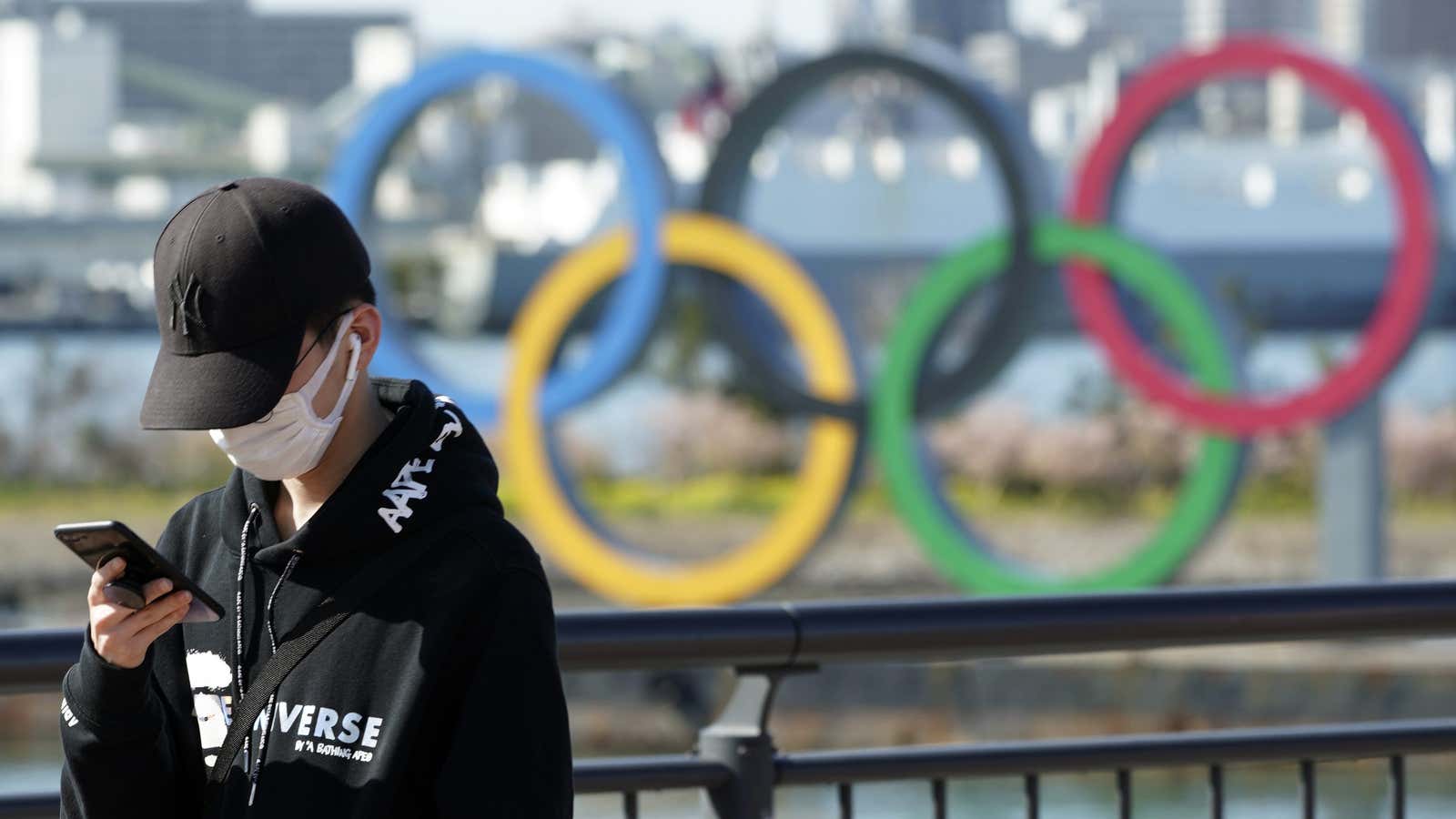TV networks and advertisers think they can weather the coronavirus storm. But much of that hinges on the 2020 Summer Olympics in Tokyo proceeding as scheduled. They very well may not.
With sports leagues postponed and production on other popular shows halted, television advertising is in a precarious situation. Ad buyers are already lowering their spending forecasts. Brands are reining in ad budgets. Outdoor media companies are struggling with the lack of foot traffic in once-densely populated areas. And the stocks of the big global advertising holding companies, like WPP and Publicis, are plummeting.
Still, there’s a belief that this turmoil is temporary, and that the industry will be fine in the long run. TV ad spots can be rescheduled or shifted to digital, and losses can at least be partially offset by the expected increase in viewership to news and US election coverage as more people stay home while social distancing.
And, of course, advertisers have the Olympics to get excited about. NBCUniversal, which has broadcast every Summer Olympics since 1988, has already sold $1.25 billion of TV ads across its family of networks for this year’s event in Tokyo, scheduled to begin July 24.
The problem is, no one knows if the Olympics are actually going to happen.
For weeks during the coronavirus crisis, Olympics organizers have insisted the games will go on as planned. But doubts are beginning to form as the pandemic continues to spread. The International Olympic Committee admitted this week it was considering alternative options to holding the games in Tokyo as scheduled. One of its board members is already calling for their postponement. Some infectious disease specialists are sounding the alarm: Even if the pandemic is contained by July, which it may not be, an event that brings together millions of people from around the world and then sends them back home could lead to more outbreaks.
Ads that air during the Olympics cannot be shifted as easily as others. Many of them are tailored to the games themselves. Ad agencies spend years—and huge portions of their clients budgets—creating campaigns specifically for the Olympics. Hundreds of companies, including some of the biggest in the world (Coca-Cola, Visa, and General Electric are all sponsors for this year’s games), have lots of money on the line.
Nobody stands to lose more than NBC. More than half of the $10.3 billion in revenue NBCUniversal’s broadcast TV division made last year came from advertising. If the games are cancelled, the company could be forced to allow some advertisers to recoup their investments.
Advertising has long been the lifeblood of broadcast TV. Though much of it has already shifted from television to the internet, old-fashioned TV still accounts for a big chunk of the total global ad spend. In 2019, the entire advertising industry spent about $620 billion—30% of which ($186 billion) went to TV. Disney, which owns ABC and ESPN, alone will lose $481 million in ad revenue if the just the remainder of the NBA season is cancelled, according to MoffettNathanson analyst Michael Nathanson.
The brands that advertise on the networks covet the attention of the audiences who tune in. With no live content on the air, advertisers miss out on their best chance to reach consumers. The Olympics offer these companies a glimmer of hope—if they happen on time, or at all.
